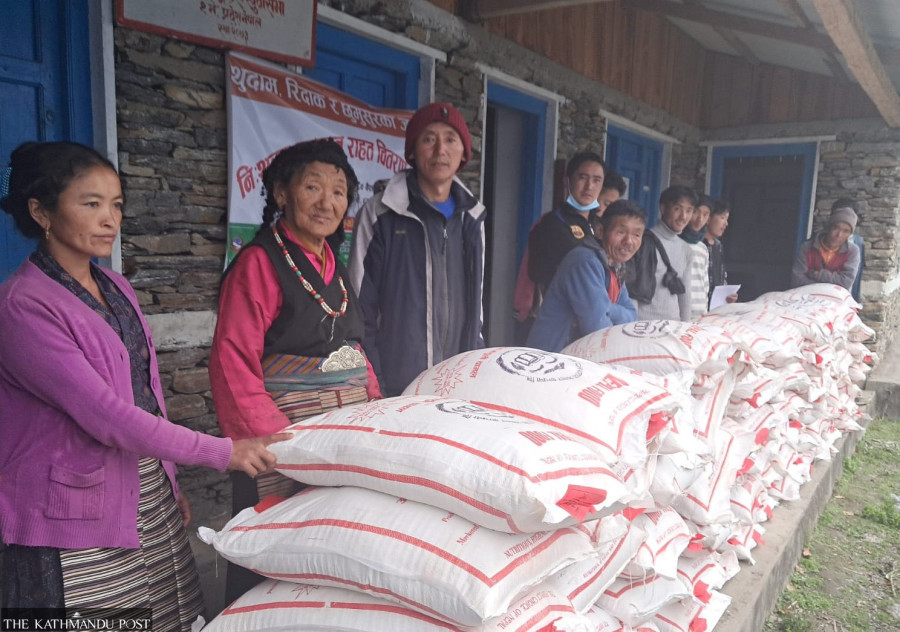Editorial
Food for festival
It is a minimum necessity to celebrate a long-awaited festival and the state must ensure it.
With major festivals round the corner, reports of food shortage, unusual price hikes in essential goods and black marketing have already started to pour in from various parts of the country. A report from Darchula, one of the country’s remotest districts, states that people in Api Himal Rural Municipality there are already short of food as the local Khandeshwari food depot is now empty. Subsidised food grains including rice have not been supplied to Khandeshwari depot for several months. Acute shortage of essential foodstuff ahead of the festive season has made local residents restless.
More such reports from other districts are certain to follow in coming weeks, as has been the trend over the years. As many far-flung villages are not connected to the national road network, people there are heavily dependent on depots for food and other essential goods. Even if such items are available in local shops, they are exorbitantly charged. According to locals, Mota rice is sold for Rs55 a kg at the food depot at Khandeshwari while the same costs up to Rs75 in the local market.
The nature of the problem may differ from place to place but market anomalies are rampant across the country, be it remote villages or urban settlements. People in major towns including the capital city of Kathmandu routinely have to deal with artificial shortages of certain items, unfair price hikes and widespread sales of substandard goods.
Food is a minimum necessity to celebrate a festival and it is the government’s basic duty to ensure it. Besides, maintaining a regular supply of essential food items and regulating their prices is vital also in view of poverty-control. Studies show price hike in staple food hits the poor the hardest as they have to spend a large chunk of their income on essential foods. A study on the impact of food inflation on poverty in Nepal concludes that “food price hike of 10 percent pushes 1 million new consumers into overall poverty while 6.7 million existing poor populations would experience even harder lives.”
Nepali Congress leaders on Monday rightly raised the issue that directly affects people’s daily lives at the party’s ongoing central committee meeting. Some members quizzed the Minister for Industry, Commerce and Supply Ramesh Rizal on the shortage and unusual price hike of daily consumer items ahead of major festivals. While admitting that there were anomalies, the minister argued that his ministry had made maximum effort to properly manage the market. He however admitted that the authorities’ endeavours hadn’t yielded expected results.
Food prices become more volatile during festivals. Traders, middlemen and shopkeepers try to manipulate the prices of foods and other essential commodities on such occasions, more than in other times. This is where the government is expected to play an important role. The authorities responsible for supplying essential goods and monitoring the market need to put extra effort to ensure necessary consumer items are available in the markets—be it cities or far-flung villages—and sold at reasonable prices. If the government fails to assure the people, they may hoard certain items out of fear of shortages, further complicating market dynamics. The government should waste no time in creating a situation whereby nobody has to struggle to properly feed their family this festive season.



 20.12°C Kathmandu
20.12°C Kathmandu













